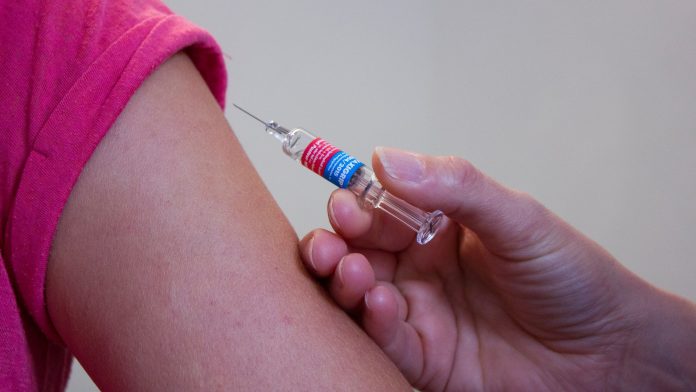
HPV vaccines have been found to protect young women against the development of cervical cancer, according to new research published in the Cochrane Library.
A new study found that those who were given HPV vaccines, particularly between the ages of 15 and 26, were better protected against cervical cancer.
The human papillomavirus is a common risk for those who have sexual contact at some point in their life. In most women, the HPV infection is cleared by the immune system. But if the immune system fails to remove the infection, abnormal cervical cells can form. If left untreated, these lesions, known as cervical ‘precancer’, can progress over time to cervical cancer.
High-risk HPV types
There are two types of HPV (HPV16 and HPV18) which are considered high risk and account for around 70% of all cervical cancer cases worldwide. Vaccines have been developed to help the immune system recognise certain HPV types.
As cervical cancer takes several years to develop, international health agencies like the World Health Organization (WHO) and regulatory bodies regard cervical lesions as the preferred outcome measure for HPV vaccine trials.
Studying two vaccines
Cochrane researchers have now summarised the results of 26 studies conducted in more than 73,000 women around the world over the last eight years to find out how effective HPV vaccines really are at protecting against the development of cervical cancer.
They reviewed the evidence for two vaccines:
- The bivalent vaccine targeting HPV16 and 18; and
- The quadrivalent vaccine targeting HPV16/18 and two low-risk HPV types causing genital warts.
They also reviewed two groups of people:
- Women free of high-risk HPV at the time of vaccination; and
- All women regardless of HPV status at vaccination.
The study looked at data from ten trials assessing cervical lesion data at between three and a half to eight years after vaccination.
What did the study reveal?
Looking at precancer cervical lesions, researchers found that for young women who did not carry HPV, vaccination reduced the risk of developing precancer. Around 164 per 10,00 women who had the placebo and two per 10,000 women who got the vaccine went on to develop cervical precancer.
Looking at data from all enrolled women, regardless of HPV status, in the group of women aged 15-26 years, vaccines reduced the risk of cervical precancer associated with HPV16/18 from 341 to 157 per 10,000. HPV vaccination saw a reduced risk for any precancer lesions from 559 to 391 per 10,000.
What the experts say
Dr Jo Morrison, consultant in gynaecological oncology at the Musgrove Park Hospital, Somerset, UK, said: “Vaccination aims to prime the immune system to produce antibodies that can lock subsequent natural HPV infection. These data show that immunising against HPV infection protects against cervical precancer, and it is very likely that this will reduce cervical cancer rates in the future.
“However, it cannot prevent all cervical cancer, and it is still important to have regular screening, even if you have been vaccinated.”
She added: “Cervical cancer can take many years to develop following HPV infection and development of precancer lesions; therefore, long-term follow-up studies are needed to find out the effects of HPV vaccination on cervical cancer rates.”
We also covered HPV vaccinations and whether boys should start having them in the latest issue of Health Europa Quarterly, which you can find here.









